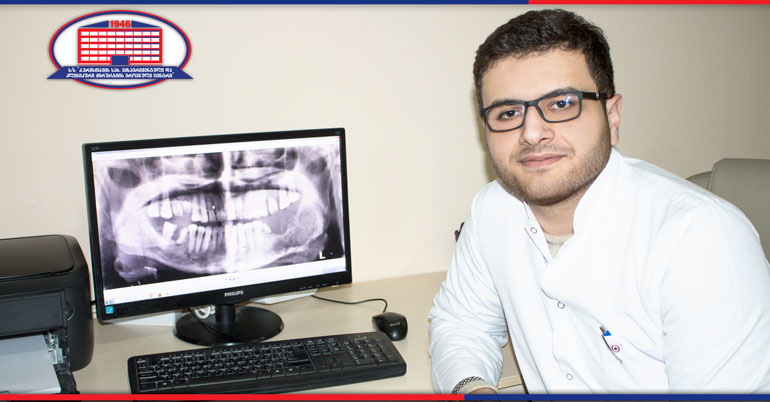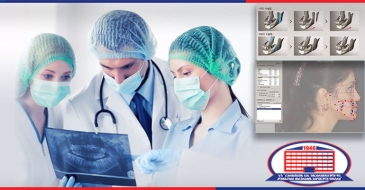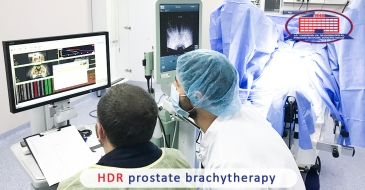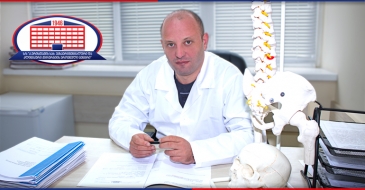
Osteomyelitis is an inflammation of the bone and the bone marrow.
It has a variety of courses, genesis, and outcomes. There are acute, chronic and exacerbated chronic forms. By genesis bacterial, hematogenous, traumatic, and other forms are distinguished.
A 33-year-old man admitted to the clinic with symptoms similar to osteomyelitis. The patient complained of a toothache, had swelling of the lower jaw on the left side, and the loose teeth. The patient had a bad odor and taste in mouth, general weakness, increased body temperature, difficulty chewing, reduced work capacity.
At the National Center of Surgery, an X-ray imaging was done, which showed multiple destructive areas near the damaged bone fragment. The symptoms pointed towards chronic exacerbated osteomyelitis. Shota Lobzhanidze, the maxillofacialsurgeon of the National Center of Surgery, performed the operation.
Mr. Shota speaks about the operation, the patient's health condition and osteomyelitis.
"It should be noted that in this case, a conservative treatment is not effective, only the surgical intervention is beneficial. The aim and purpose of surgical intervention are to completely resect multiple destructive areas in the bone (within healthy tissues) to prevent the spread of the disease because the blood circulation in the area is dysfunctional (because of inflammation) and the site is necrotic. Debridement of the oral cavity is also necessary (tooth extraction, removal, in this area) because in this case, the causal reason was the tooth.
The operation also involves restoration of the partial integrity of the lower jaw contour with special plate and screws of Titanium. This particular operation lasted for 3 hours. Mr. Vakhtang Shiukashvili was the assistant. After the complete resolution of the inflammatory process in the bone, it is possible to fully restore the anatomical shape of the lower jaw. The above-mentioned operation requires the observation of the patient in dynamics and the right recommendation plan by the doctor. At this step the patient feels good, the general condition is improved. On the third day after the surgery, the patient was discharged home with an appropriate treatment plan. I would like to ask the readers to pay attention to oral hygiene because many diseases can be caused by teeth!
To prevent abovementioned complications please, seek for a doctor even if show minimal symptoms” – Says Mr. Shota.
National Center of Surgery address – Tbilisi, Digomi Chachava street N5.
You can contact the Call-center of the National Center of Surgery at 577 11 91 19;
If you have some questions, you can contact the maxillofacial surgeon of the National Center of Surgery Shota Lobzhanidze at 577 33 04 49.
Wish you health!









